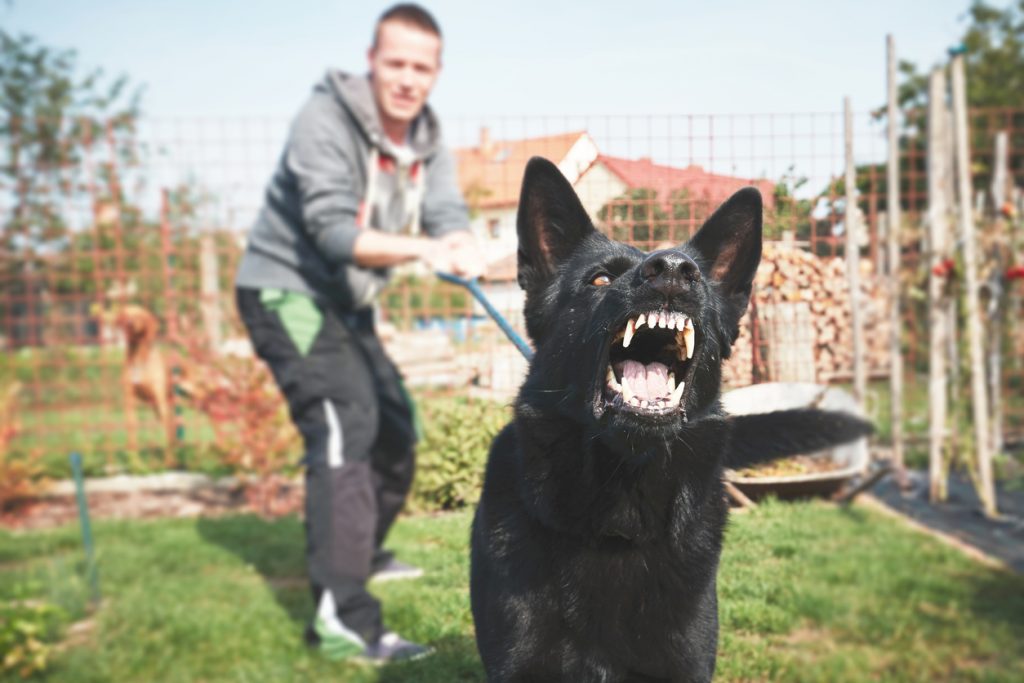Euthanasia Due To Aggressive Behaviour

Euthanising a healthy dog is one of the hardest things a dog lover has to face. However, it is one of the options people request for dogs with behavioural problems. For the owner these can be emotional, frustrating, and financially taxing when trying to find a way to solve them. Euthanasia due to aggressive behaviour may be a solution…
Euthanasia Due To Aggressive Behaviour – The Options
- Controlling a behavioural issue is never going to be easy so you’ll need to evaluate the options:
- Continue to live with the problem
- Rehome your pet to a more suitable environment
- Rehabilitate your pet to an acceptable standard of behaviour
- Consider putting your pet to sleep
Serious behavioural problems
There are some types of aggression that are almost impossible to treat and human safety always has to come first. Some dogs have deeply engrained and violent aggression to other animals as well as people, and this makes the risk of attack and savagery very real.
Other behavioural issues include constant howling and barking, destructive chewing, and toileting issues. These can all impact on the mental health of owners and have to be taken seriously.
Vets will try every other option before considering euthanasia – any aggressive dog should have extensive medical tests to make sure that pain or illness isn’t causing the behaviour. You cannot solve many problems in a single visit – particularly when the problems are aggression and anxiety. If the owner is frightened of the pet this makes the success rate lower.
Risk assessment
Behavioural factors are most important as these often determine the resolution. Questions that need to be addressed include:
- What is the problem?
- What is the frequency and intensity of these problems?
- Is this a danger to people and other animals?
- Does the pet self-injure?
- How easily is the animal triggered to bite?
- How severe is the bite injury?
Patient characteristics
There are many other factors that need to be taken into consideration as these can make altering behaviour easy or more difficult and these include:
- Size – large dogs are at greater risk of euthanasia for aggression as they have the potential to inflict greater damage
- Breed – Pit bulls, Rottweilers, Dobermans, and German Shepherds are breeds that predispositions for behaviour traits
- Genetics – pets with development disorders have a poorer diagnosis
- Socialisation experience – training and puppy raising techniques are vital to influence future behaviour
- Medical history – dietary restrictions and medications can all play a role in affecting behaviour
Treatment plans
Working on a treatment plan needs to be carried out with the owner and a professional. Your vet will take a complete and thorough pet history, and then they’ll perform a physical examination. Your vet may have to conduct the examination with your dog under sedation. The owner’s relationship with the pet will be evaluated and a goal will be set.
At the end of the program the vet will reassess the situation. They will determine how hard it has been implementing the safety management steps. Also, how much time they spent on the training exercises, and how stressful it was. Then they will assess any changes in the animal’s behaviour to see if it has improved or worsened.
Behavioural therapy
The use of behavioural therapies may help cure some problems. The vet will break the therapy down into different stages:
Desensitisation
For every aggressive episode there is a trigger – repeatedly exposing the dog to the trigger stimuli stops the aggressive response in your dog
Counterconditioning
By using a combination of distraction and positive reinforcement you can make the trigger stimuli positive – using treats will give positive consequences
Deference training
This is the process of teaching your dog to sit calmly before he gets what he wants – helping them learn that positive things happen when they are calm as he’s in a more relaxed mental state
Structured exercise
Curbing aggressive behaviour with exercise channels energy in a positive way – reducing the act of aggression considerably
Massage therapy
A gentle massage can remove some of the root causes of aggressive behaviour as it relaxes and soothes – taking away the stresses of noise, smells, and activities.
Rehoming
Many rescue groups won’t take dogs with a history of biting due to legal liabilities of the dog bites someone in the new home. If, however a specific predictable factor triggers the aggression, you could possibly relocate your dog.
You should put your dog into another room if children are around. Alternatively, you will have to find another home, without children, for your dog. Often aggressive dogs thrive in different settings as they can feel safe and happy in a rural setting rather than an urban one. However, you must remember that visitors still arrive and there will be other dogs and cats in the vicinity too.
It’s very difficult to find prospective owners that have the skills and the lifestyle to make it possible for them to rehome an aggressive pet. You must also take finances into account as working with a trainer or behaviourist can be quite expensive.
Euthanasia Due To Aggressive Behaviour – Gentle At-Home Euthanasia
Unfortunately, Cloud 9 Vets does not believe that the home is a suitable environment to euthanise an aggressive dog any longer. There is a risk that the process may not be gentle, making an aggressive dog even more possessive. Therefore, this situation can become dangerous, and may also be distressing to anyone in attendance. It is likely that you will have to speak to a clinic, which has the necessary safety equipment to make the euthanasia safe for everyone involved.
Tags: dog euthanasia, how to cope with putting a dog down, pet euthanasia
Cloud 9
To ensure accuracy, a professional vet has reviewed and verified the information presented in this article. It is important to note that when it comes to making decisions about euthanasia for your pet, there are no easy answers. It is always recommended to seek advice from your own veterinarian before making any decision.



